Viral video advises washing fruit and vegetables with soap: Here's why that's a bad idea
A private family doctor from Michigan released a video advising people to wash their produce with soap and water. Here is why this is not recommended and proper precautions that you can take instead.
It pays to love your veggies – especially when you’re loading up on some of the healthiest.
Read on for a list of nutritionist-approved vegetables to support good health.
THESE ARE THE BEST FOODS FOR YOUR HEART, EXPERTS SAY
1. Shiitake mushrooms
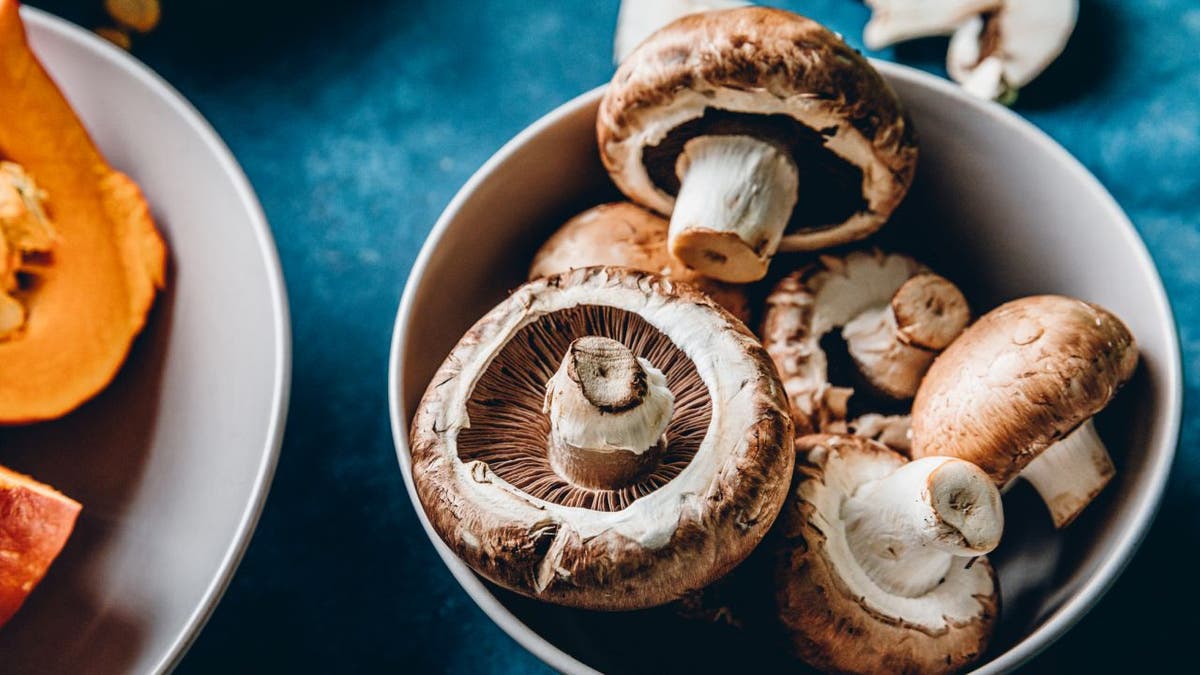
Shiitake mushrooms are an edible fungus native to East Asia. (iStock)
"Shiitake mushrooms are not only a low-calorie vegetable but have been shown to reduce inflammation and benefit immune function by increasing secretory IgA, which serves as the first line of defense in the body protecting us from pathogens," says Erin Kenney, Massachusetts-based registered dietitian and CEO of Nutrition Rewired. "Try throwing them into a stir-fry over rice."
Or, consider serving these tasty mushrooms as a side dish, sautéed with garlic and scallion.
2. Sweet potatoes
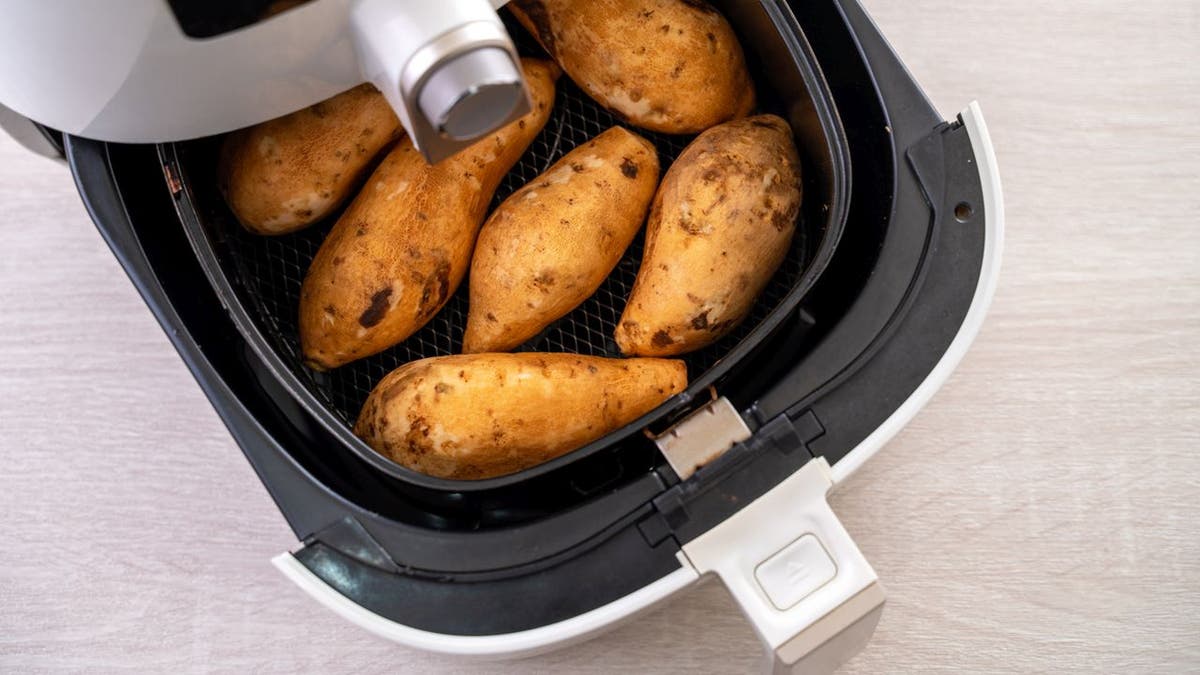
Sweet potatoes are a tuberous root vegetable with a sweet taste. (iStock)
Already regularly eating this nutrient-dense and fiber-filled tuber? Keep it up.
"Sweet potatoes are considered a functional food, as they contain many nutrients that human beings need for optimal health," says Jared T. Meacham, Ph.D., president of DC Metro Academy of Nutrition and Dietetics in Washington, D.C..
Meacham noted that sweet potatoes are a source of both soluble and insoluble fiber.
SHOULD YOU RAISE YOUR CHILD AS A VEGAN OR A VEGETARIAN? NUTRITIONISTS WEIGH IN.
"These promote gut health by helping to clean the gastrointestinal tract while softening stool and helping to maintain a healthful internal environment," Meacham explains.
Additionally, sweet potatoes are a quality carbohydrate source, says Meacham, and one cup contains over half of a person's recommended dietary allowance (RDA) of vitamin A, vitamin C and manganese. "The antioxidants contained in sweet potatoes protect cells from damage and may have anti-cancer properties, specifically in colorectal cells," he adds.
3. Jicama
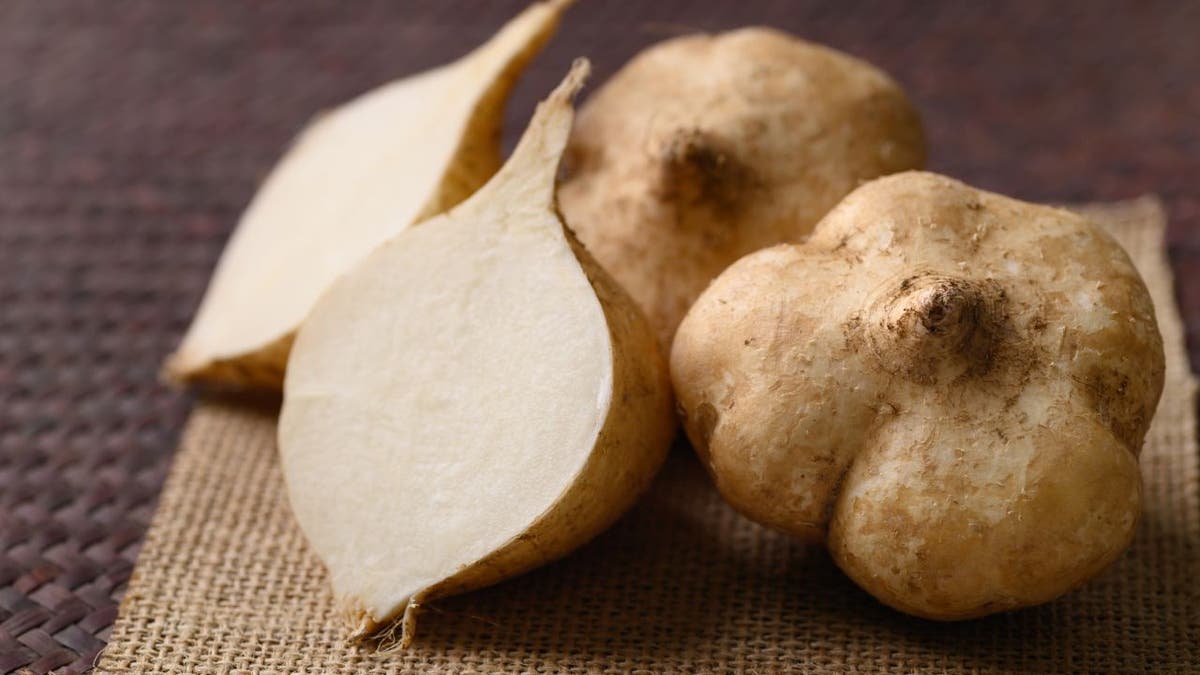
Jicama is a yam bean (AKA turnip) native to Mexico. (iStock)
"Jicama is a refreshing, crunchy vegetable that is rich in prebiotic fiber. Research has shown the type of fiber in jicama may prevent excessive blood glucose and body weight increase," says Kenney, who suggests dicing this veggie into a salad or dipping it in hummus for a satisfying snack. The root veggie also makes a welcome addition to smoothies.
4. Green peas
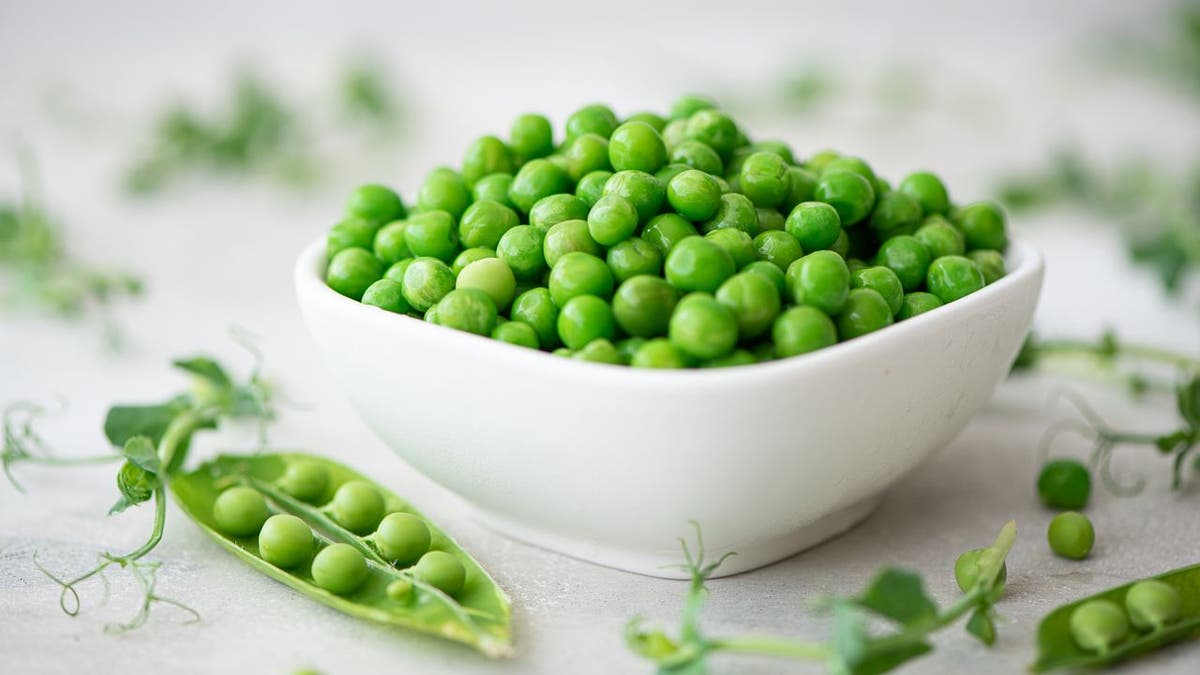
Green peas are technically legumes, but these pods are filled with nutrients. (iStock)
Let’s hear it for these tiny green stars.
"Green peas have a unique nutrient profile because they not only supply quality starchy carbohydrates, but also provide a significant amount of fiber and protein, per serving, making them a highly nutritious source of these important nutrients," says Meacham.
He went on, "This is why pea protein supplementation is in such demand for both vegans and non-vegans looking for plant proteins to supplement their diet. Additionally, green peas contain saponins, which have been demonstrated to be effective at combating cancers. P.S. Frozen green peas are also affordable and keep in the freezer for a long time."
THESE ARE THE WORST FOODS FOR YOUR HEALTH, EXPERTS SAY
5. Broccoli sprouts
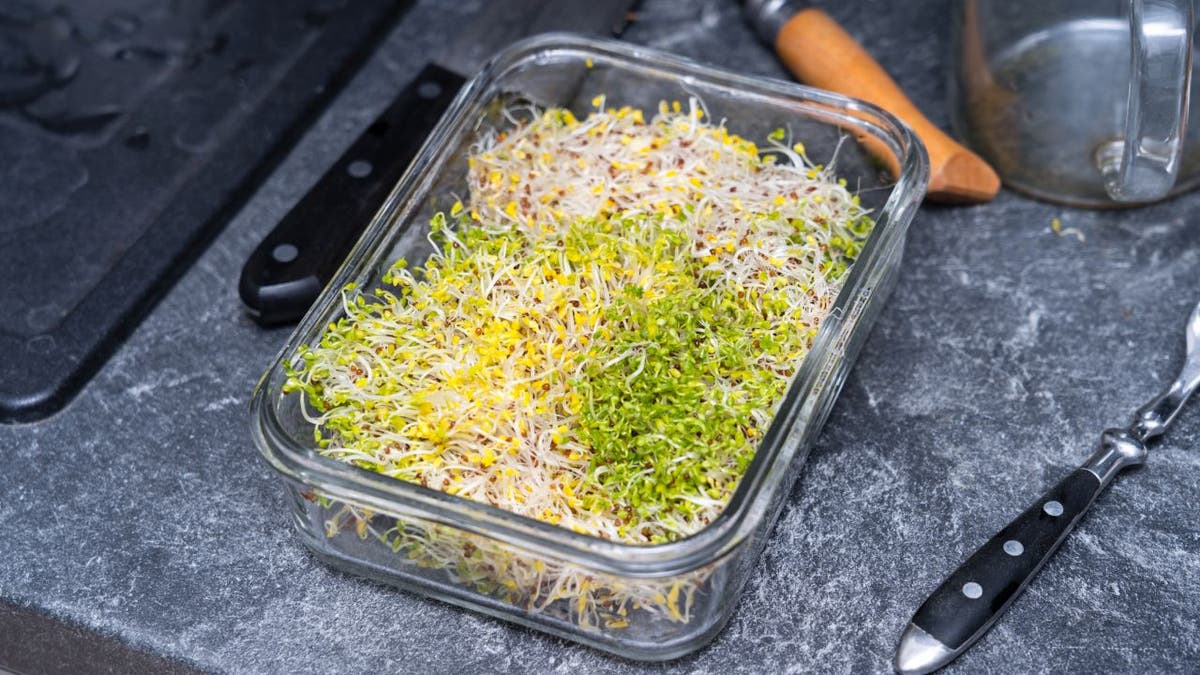
Broccoli sprouts are broccoli plants that are only a few days old and have leafy stems. (iStock)
"Broccoli sprouts release a phytochemical called sulforaphane which can help heal the gut, reduce inflammation and could even help fight cancer by enhancing antioxidant activities," says Kenney.
"Sulforaphane has been shown to increase Phase II detoxification enzymes and/or antioxidant enzymes, which detoxify your body of potential carcinogens and other disease-causing compounds," she continues, noting that it's easy to grow your own broccoli sprouts at home. Throw them in a sandwich or a smoothie, she suggests.
6. Garlic
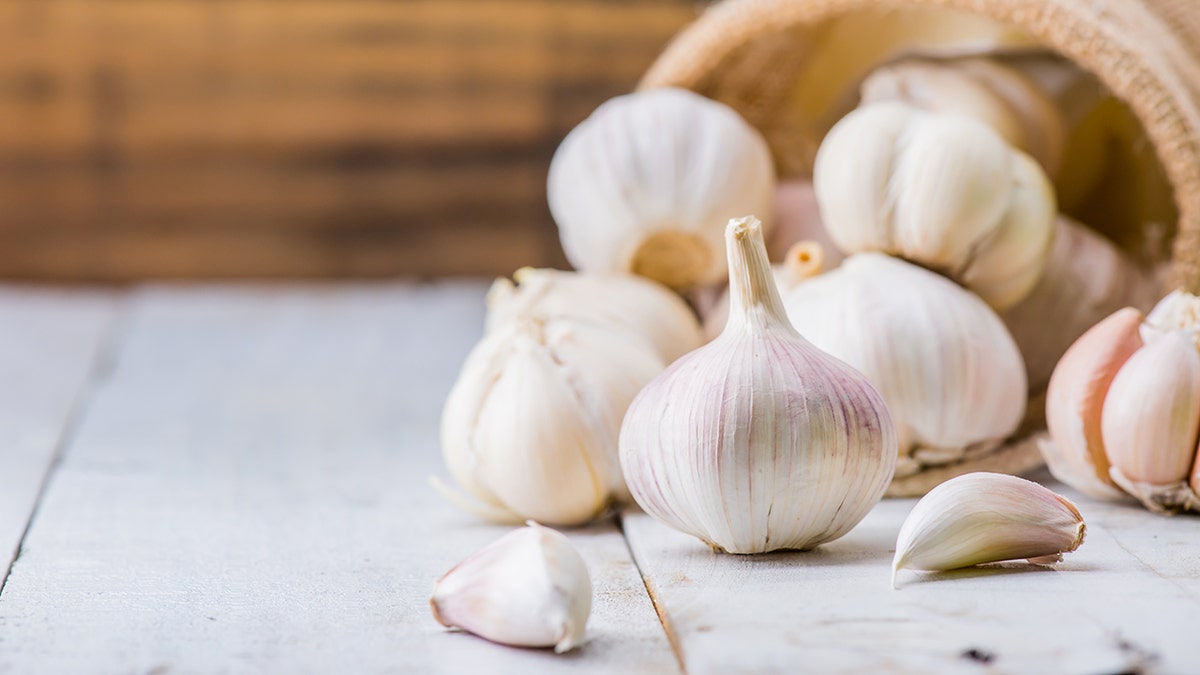
Garlic is a bulbous flowering plant in the lily family. (iStock)
Part of the onion family, garlic may not be a boon for your breath, but it sure is one for your health.
"Garlic is an amazing vegetable whose active ingredient, allicin, is the primary reason for its many healthful properties. Many of garlic's most impactful health benefits center around its likely ability to help decrease LDL cholesterol while increasing HDL [or ‘good’] cholesterol," comments Meacham. "Additionally, some research suggests that garlic contains properties that combat various kinds of cancer, with some research identifying liver cancer as a likely form of the disease that allicin may be effective in combating."
For what it’s worth, raw garlic contains more allicin than the cooked version, so try consuming it raw if you can, like minced into a salad dressing or a clove or two blended into a smoothie.
MORNING HABITS DOCTORS AND PSYCHOLOGISTS WISH YOU WOULD DO
7. Kimchi
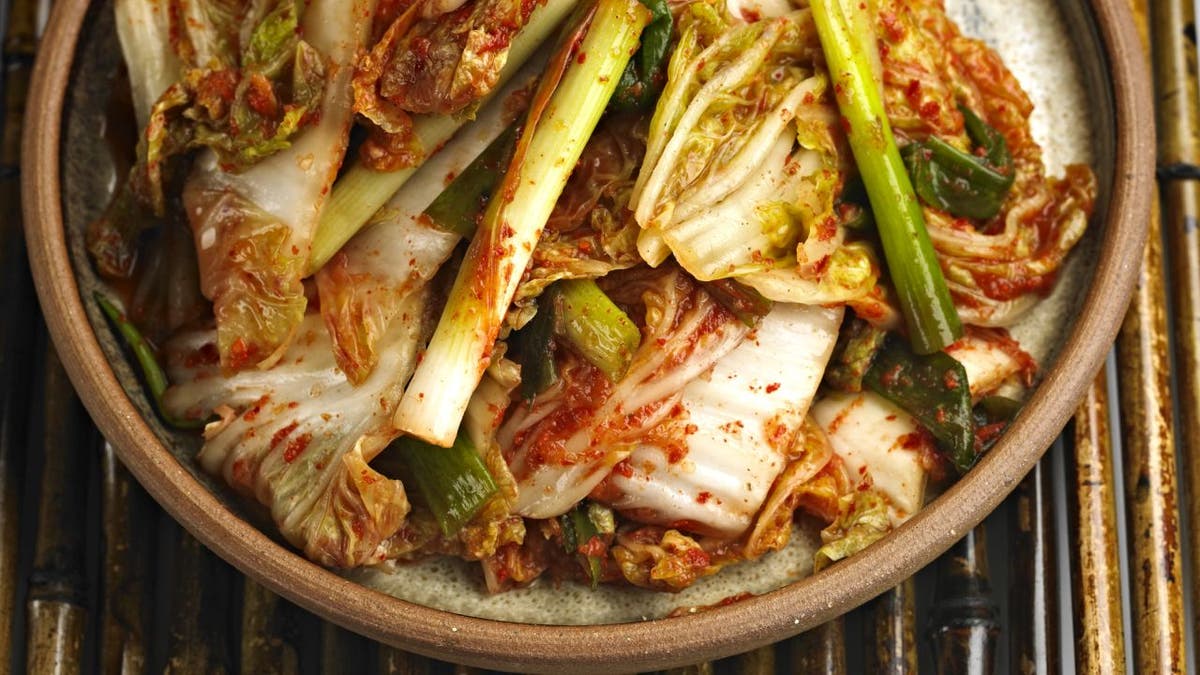
Kimchi is a traditional Korean side dish that's made from fermented cabbage, radish and seasonings. (iStock)
Pass the kimchi, please.
"Kimchi, a fermented Korean vegetable mixture, has been shown to decrease levels of cholesterol in the body," comments Kenney. "Fermented foods help to boost the beneficial bacteria in the gut, which has been shown to improve immune function."
The popular condiment tastes great in soups or mixed into savory entrée dishes. Buy it online or in the Asian foods section of your local grocer.
8. Beets
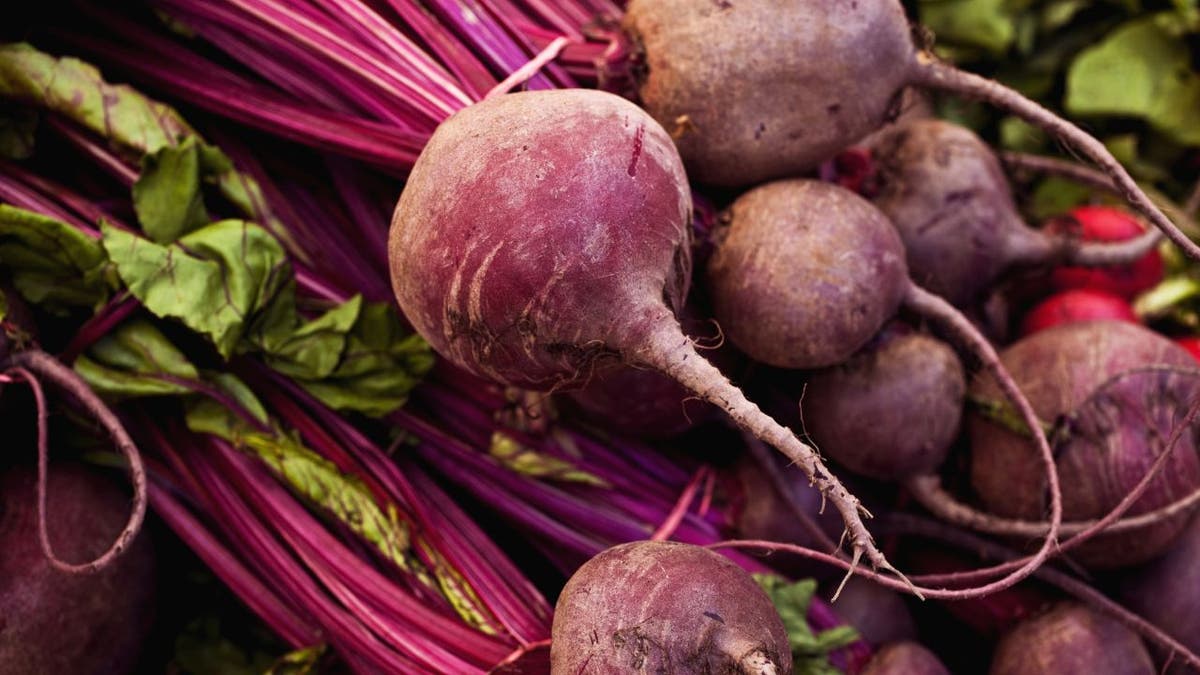
Beets are red root vegetables that are rich in potassium. (iStock)
A bit messy, but well worth the cleanup.
"Beets contain the antioxidant betalains, which give red beetroots their natural, vibrant red color. Beetroots are also a great source of vitamin C, vitamin A, vitamin K, calcium and iron," says Alyssa Burnison a Sioux Falls, South Dakota-based registered dietitian with profileplan.com. "Given the antioxidant properties of betalains, they can protect our cells against DNA damage and provide anti-cancer properties."
CLICK HERE TO GET THE FOX NEWS APP
9. Carrots

Carrots are an orange root vegetable native to Europe and Southwest Asia. (iStock)
If you’re reading this and have baby carrots in your fridge, go ahead and grab some to snack on.
"Carrots are commonly known for their rich sources of vitamin A and carotenoids, specifically beta-carotene," says Burnison. "Your body converts the beta-carotene to vitamin A, which has been known to support immune function and eye health," she says.
10. Brussels sprouts
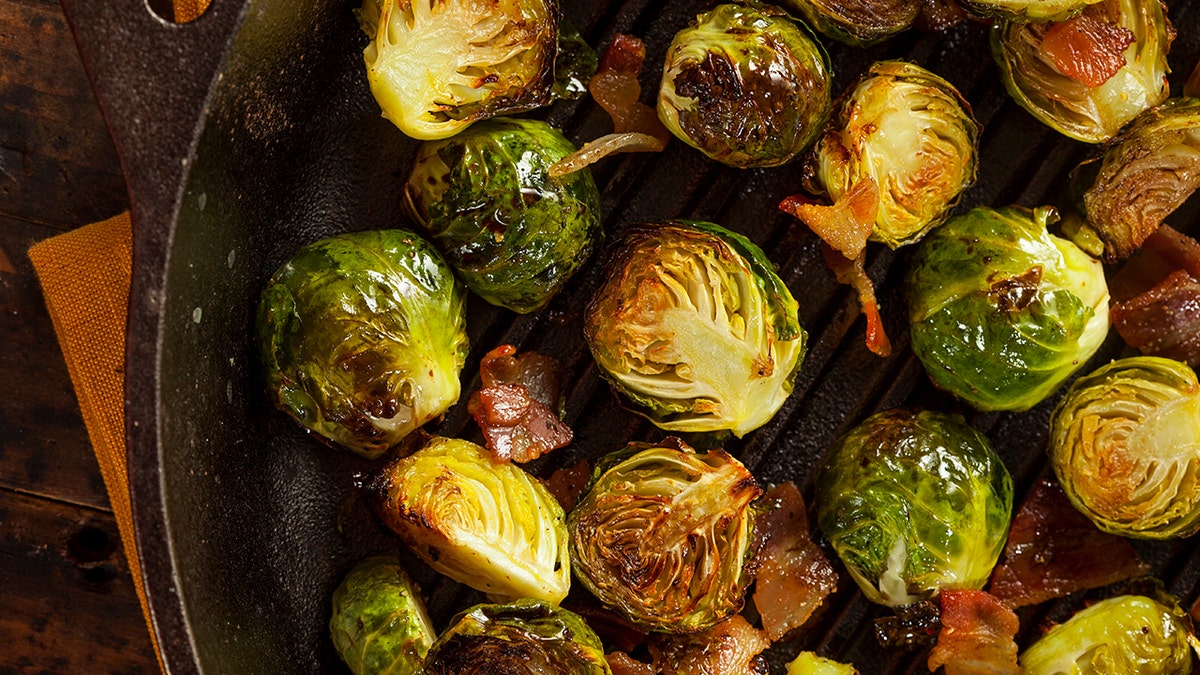
Brussels sprouts are edible cabbage buds that have been a staple veggie in Belgium. (iStock)
"Brussels sprouts fall into the family of cruciferous vegetables and are a great source of vitamin C, vitamin K, soluble fiber and folate," shares Burnison. "Soluble fiber, in particular, has been shown to help regulate blood sugar as it becomes a gel-like substance within the gut once digested. This can help prevent blood sugar spikes and decrease risk of type 2 diabetes."
FOLLOW US ON FACEBOOK FOR MORE FOX LIFESTYLE NEWS
11. Spirulina
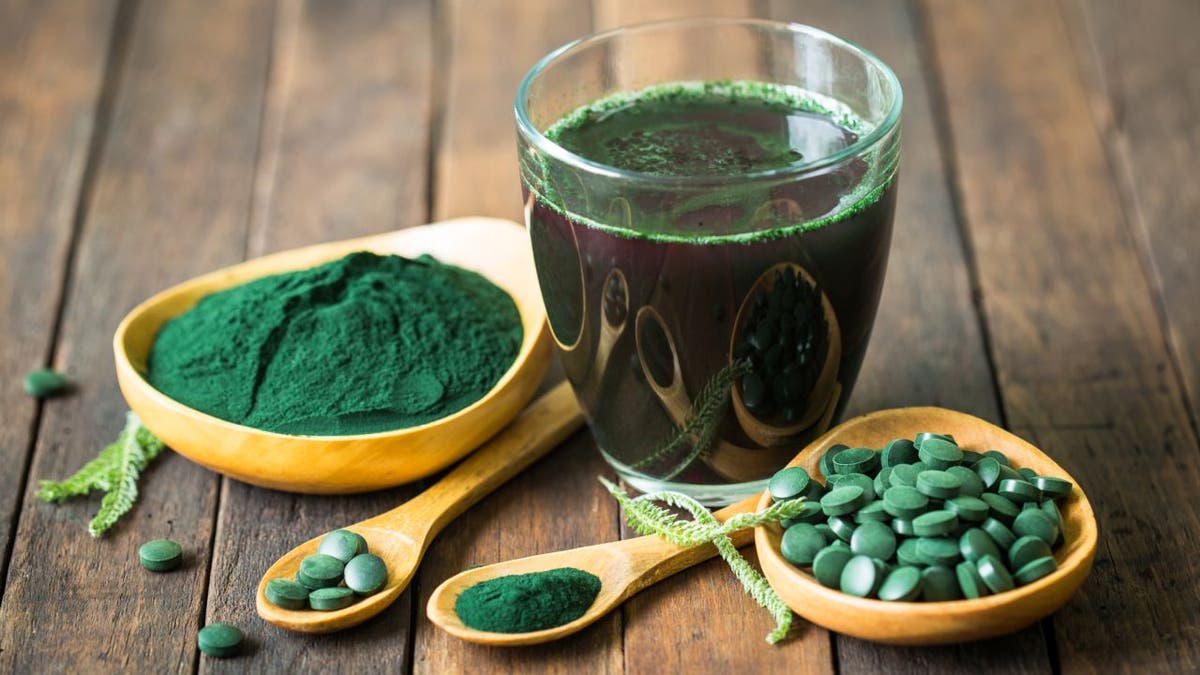
Spirulina is a blue-green algae rich in vitamins and minerals. (iStock)
It’s time to add this superfood to your diet:
"Spirulina is technically a form of blue-green algae, but is often considered a ‘sea vegetable’ and is typically [sold in] powder form [for use in increasing] the nutrient profile of shakes and smoothies," shares Meacham.
You can also try sprinkling some into your favorite chia seed pudding or oatmeal preparation.
"It packs a considerable amount of antioxidants and anti-inflammatory compounds like C-phycocyanin (C-PC) in even the smallest serving," says Meacham. "Spirulina supplementation has also been shown to help balance blood sugar and blood lipid profiles of people with Type 2 Diabetes. Likewise, spirulina has shown promise in research designed to determine its ability to combat oral cancer cells."

